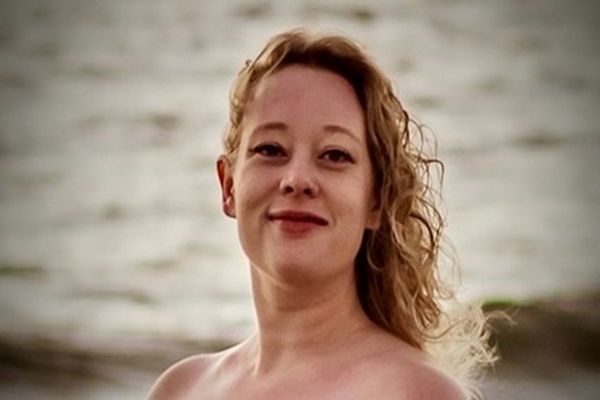
The family of an Indigenous man who died after being sent home from a regional New South Wales hospital has staged a protest demanding accountability and urgent changes in the way Aboriginal people are treated in the NSW health system.
Protesters gathered outside Dubbo hospital on Monday to demand a coronial inquest into the death of Kamilaroi/Dunghutti man Ricky “Dougie” Hampson Jr in August 2021.
His family claims the 36-year-old was released from the hospital without appropriate treatment partly because he was Indigenous.
According to a statement from the National Justice Project on behalf of Hampson’s family, Hampson presented to Dubbo hospital with severe stomach pain and a popping or tearing feeling in his stomach on 15 August. He was sedated, given painkillers and sent home, allegedly without a proper diagnosis. The statement said he died within 18 hours from two perforated duodenal ulcers.
His father, Ricky Hampson Sr, said Monday’s protest was intended to give Dougie a voice.
Hampson Sr believes his son may not have been given potentially life-saving treatment because he had identified himself to staff as a recreational cannabis user.
“An Aboriginal person turns up and admits to smoking marijuana, they presume straight away that because he’s complained of pain in his abdomen, they put it down to cannabinoid hyperemesis syndrome.”
“We want a coronial inquest into Dougie’s death. We want change within the NSW health system,” Hampson Sr said.
Protesters including family and friends gathered at Teresa Maliphant park and marched to Dubbo hospital’s main entrance on Monday carrying photographs of the deceased father of eight and signs bearing messages such as “A simple scan would have saved Dougie’s life”.
Talesha Murray, the eldest of Hampson Jr’s children, told the rally: “I feel for my brothers and sisters..”
Hampson Jr’s youngest child was seven years old.
Murray told Guardian Australia: “Today shouldn’t even be happening but we are here. I want justice for my father and every black person who got put in the same situation.”
Hampson Sr said five months after his son’s death, the situation felt “torturous”.
“People say time heals all wounds but it doesn’t – this is something we’ll never get over,” he said.
“When me and his mother are home by ourselves, we look at his photo and we break down. The only reason we have the strength to get through today is because Douglas’s spirit is here with us.
“Unless people are held accountable, Aboriginal people will keep dying like this.”
The family wants the health minister “to step in and make sure this never happens again anywhere in NSW”.
“The NSW government has been on notice of this systemic issue, at least since the death of Naomi Williams, and Dougie’s death confirms that there is a need for urgent action,” Hampson Sr said.
The coroner who investigated the case of Williams, a 27-year-old who was six months pregnant when she died of a treatable infection at Tumut hospital in 2016, found there was implicit bias in the way hospital treated the Wiradjuri woman.
Wendy Brookman, a Butchulla woman who attended the protest for Hampson, said: “It’s not the first time and the scariest thought is that we don’t believe it’s going to be the last either.”
George Newhouse, a solicitor and the chief executive of the National Justice Project, said: “We need to learn lessons.”
Newhouse is acting for Hampson Sr and Dougie’s mother, Lydia Chatfield.
“A coronial inquest would provide an opportunity to observe systemic patterns and to prevent deaths in similar circumstances, and most importantly to provide transparency and accountability to a system that too often fails Aboriginal people,” Newhouse said.
The lawyer has heard other complaints from First Nations people about their treatment at Dubbo hospital.
“Some have told me that they are prepared to drive five hours to attend a hospital in Sydney rather than present themselves at Dubbo hospital.”
Newhouse said Aboriginal health liaison workers should be employed across Australia, particularly within emergency departments. He also suggested leaders “acknowledge the existence of implicit bias in healthcare and address it with objective tools, measure it and report on it”.
He said a deputy state coroner made “profound” recommendations after the death of Naomi Williams but they were yet to be implemented statewide or nationally.
“It’s absolutely essential that hospitals introduce anti-racism, anti-discrimination, anti-bias policies and mandate the provision of culturally safe care to individuals. Until that happens there is always the risk of harm.”
A Western NSW local health district spokesperson said: “We offer our sincere condolences to the family of this man."
“The death of this man has been referred to the coroner and the Western NSW local health district will assist in the coronial process.”







